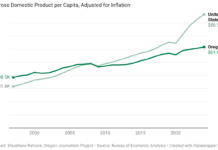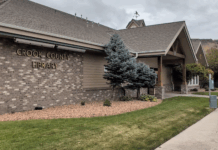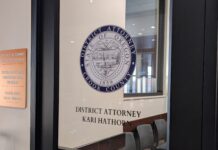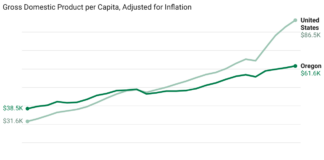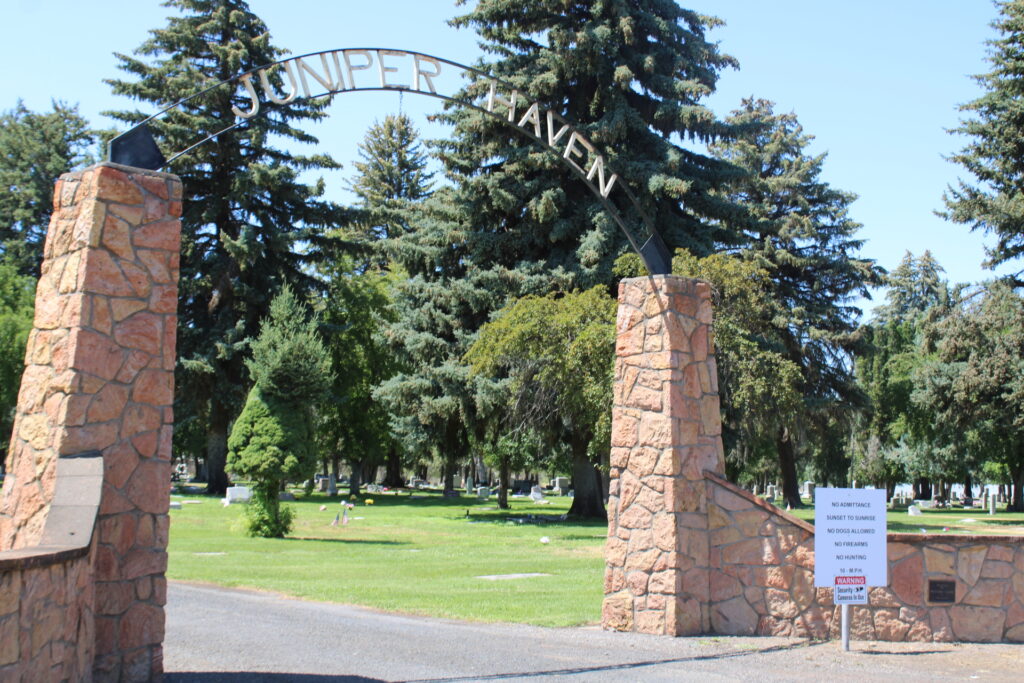
Prineville, Ore. – A contentious public meeting of the Crook County Cemetery District on Thursday revealed the mid-term appointment by the two current board members of a new member of the special district’s three member board.
Questions raised by citizens, as well as directly by The Prineville Review, are promptly seeking to uncover how a new board member of the special district with taxing power was appointed without a public vote or even public deliberation.
The appointment came despite no public deliberations by the existing board of directors — let alone a vote for a final decision — ever took place during the July 11th meeting. The action violates multiple provisions of Oregon’s Public Meetings Law related to public meetings, notice requirements, and rules related to executive session under ORS 192.630.
During the meeting, the District’s Manager, Cory Nelson, read a public statement from the district of the appointment of Roxanne Cummings-Basey to the recently vacated position.
Following a meeting last month (which was not attended by The Prineville Review), an announcement via the district’s Facebook page reported a vacancy of an elected board member position with the Crook County Cemetery District. The vacancy, announced July 17th, was open for applications until July 5th, 2024.
Between the announcement of the application and the July 11th public meeting, no other notices of public meetings had taken place. No notice of only an executive session (if even permitted) appears to have taken place for the board to deliberate on the matter, which while restricting attendance by members of the public, allows for attendance by members of the news media as outlined by a 2016 order from the Oregon Attorney General.
Nelson also told The Prineville Review on Friday that he was also unaware of any deliberations or votes taken by the two existing directors, Velda Jones and Jamie Wood.
According to multiple sources, Wood was also recently appointed outside of an election cycle following the resignation of a previous board member earlier this year. Questions were also raised regarding Wood’s own appointment by Jones and a past board member, and if it complied with Oregon law.
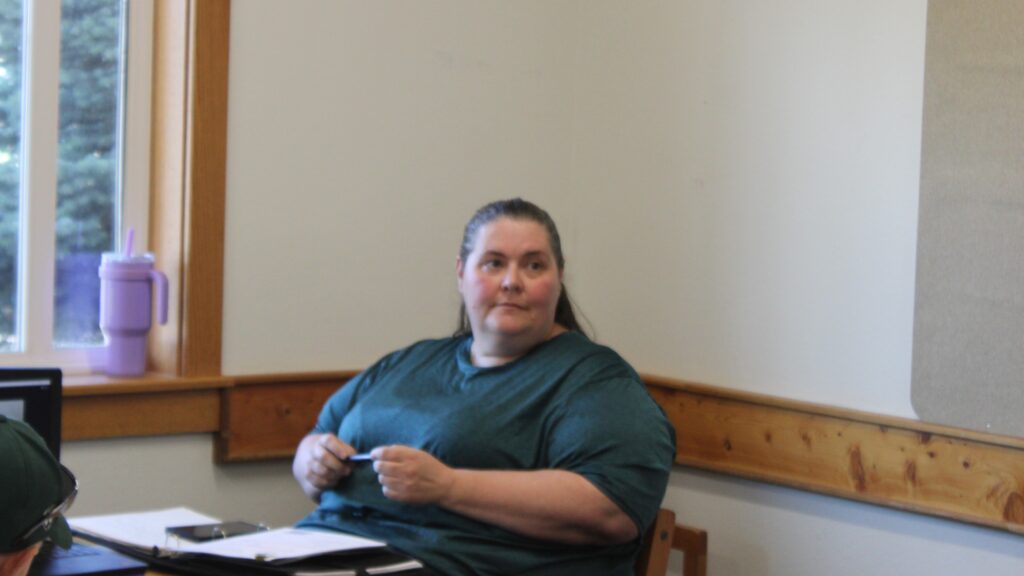
According to the the Oregon Department of Justice’s guide on public meetings for public officials, “[discussions] in executive session may proceed even to the point at which the governing body has reached an informal consensus as to its course of action. However, any final decision must be made in open session.”
Oregon law (ORS 192.660) makes clear that the exceptions allowing executive sessions do not apply to vacancies of an elected office or individuals appointed to a committee, commission, or advisory group of a public body. The actual vote to appoint, which would constitute a final decision, would not be able to be made even if executive session was permitted for deliberations (which it is not).
Following the July 11th meeting, Cummings-Basey also demanded The Prineville Review provide an opportunity for her and the board to answer questions and provide any statement after several citizens asked to speak about their own concerns.
When reached for comment regarding the questions about the handling of her appointment and apparent lack of a public vote and deliberations, Cummings-Basey quickly became defensive. We also asked if she had any information on when the other directors apparently held an illegal executive session.
“I wasn’t involved in any deliberations, so I have no idea when, if, or how they deliberated,” said Cummings-Basey.
She also went on to explain that critics of the board were a “loud minority”, but that a “silent majority” that does not agree with people, specifically naming local citizens Tim Walsh and Jack Radenberg during the brief interview.
Radenberg explained that he has been going to the district’s board meetings starting around 2022 after he became upset over what he described was poor if not negligent upkeep of cemetery property paid for through tax dollars. Since that time he’s explained that the board frequently fails to comply with numerous aspects of the Oregon Public Meetings Law, including detailing some of the findings made by The Prineville Review.
The Crook County Cemetery District is a special district which has powers to apply local property taxes. The district currently taxes property owners about $0.09 per $1,000 of assessed property value. That’s about $45 per year for a $500,000 property in the county.
Cummings-Basey also said that Walsh’s conduct and expressions of his frustration during public comment was inappropriate. She went on to detail what appear to be further deliberations on official business between her and the other board members in the day following the meeting and speaking with this publication.
“We’re taking steps to make sure it doesn’t happen again — you can trust that. We are making some major changes that will be reported in the next few weeks. We are going to fulfill our responsible to the letter of the law — there will be no question,” remarked Cummings-Basey.
The day prior, Walsh had admitted shortly after that meeting that he realized his comments were very contentious, and there had been a lot of emotion involved. While he said he probably should have been better tempered, he like others had been frustrated with the alleged misconduct by board members in the management of the district, and felt that he still had a first amendment right to say what he said.
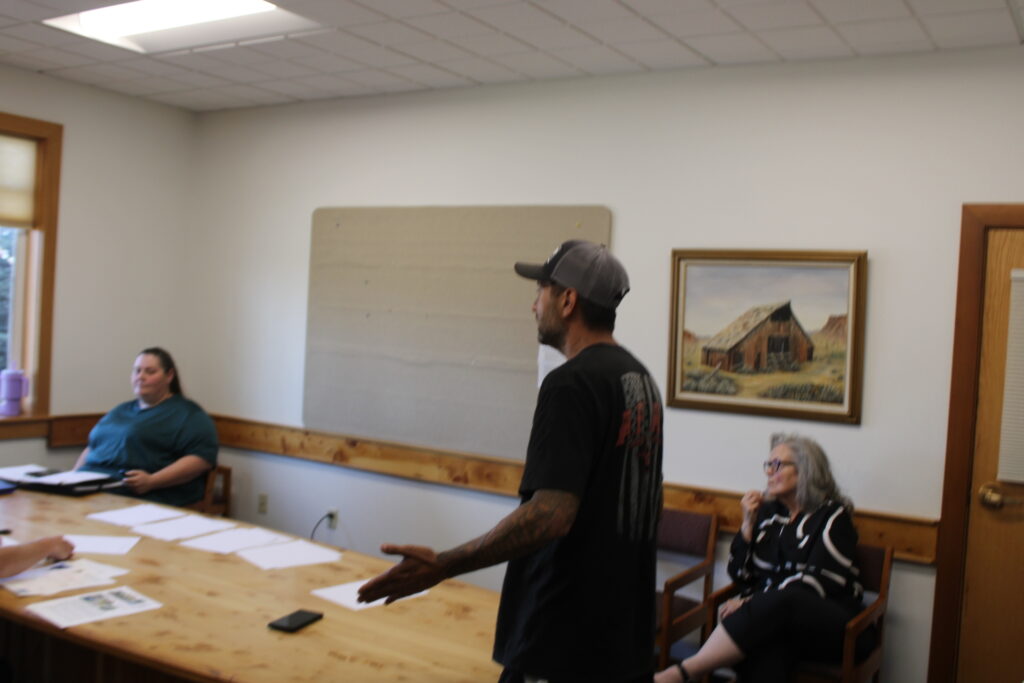
“Regardless, I do have a first amendment right, and they still have to respect that, but I do want my voice to be part of a solution and for them to understand that people are more aware of the problems now,” explained Walsh.
“This started because of many people being upset with how the cemetery was taking care of things and handling sentimental trinkets, but I’m honestly more upset at how they are responding and treating people, and running these meetings illegally — they aren’t even being equal in time based on who is speaking their mind, and now we’re being told that recordings of the last meeting ended up corrupted on [Wood’s] hard drive.”
Jones at one pointed called for a Sergeant with the Prineville Police Department to remove Walsh from the meeting following his contentious criticism direct at her, but the officer did not appear to take action. Walsh later claimed the officer remarked to him that he could not be removed from a public meeting for simply expressing his freedom of speech.
The police sergeant told the Prineville Review that the board had made a request with dispatch for police presence at both the meeting last month and again for the meeting held on July 11th at the Crook County Library.
Nelson also spent time with the Prineville Review trying to answer what questions he could and provide insight and history into the special district’s operations and how they serve the citizens of Crook County. He went on to detail the amount of property under management.
“We absolutely know there have been problems, and we can own that. We want to work better at communicating and being open with the community,” said Nelson.
Some questions we had Nelson ultimately said are for the board members to answer.
Cummings-Basey went on to end her interview before we could ask her further specifics regarding “major changes” she referred to in response to concerns over public comment issues, and if such discussions would have constituted an illegal executive session.
The interview ended with her criticizing both our questioning of board members, as well as not providing notice of attendance at the board meeting and showing up at the district’s office on Friday unannounced to speak with Manager Nelson. While Nelson (who was appointed by the district’s board last year) operates the day-to-day operations and oversight of multiple employees of the district, he is not a voting or elected member of the board.
“It’s my sense that you have hostility and antagonism of the board. Now you may be trying to make a name for yourself as a reporter, all reporters do I understand that– that’s your job– but I am not comfortable with the demeanor that you’re approaching me with, and sense that you are not neutral,” Cummings-Basey said.
This reporter explained that the interview was not a demand, but were efforts to offer the opportunity to comment with us just as she had actually demanded the day prior before our press deadline.
“I’m not going to say if you do something, that something will happen, because that’s a threat, and I’m not going to do that,” she said before a long pause.
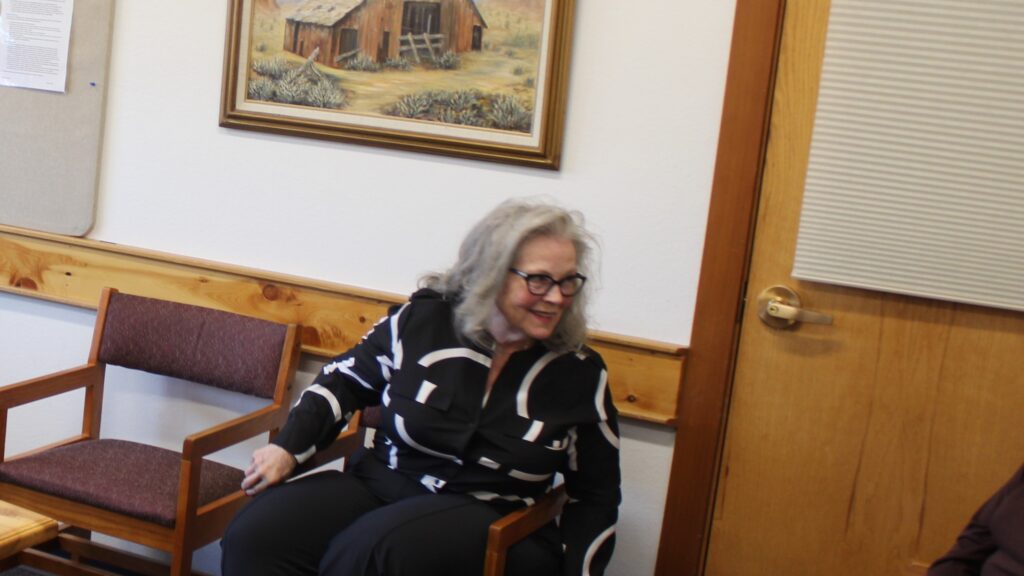
Cummings-Basey become more contentious seconds before ending the interview, demanding “press credentials”, and that we email her that information before we would be permitted to engage with her further. We did ask her what agency she thought we needed to obtain press credentials from, but she ignored the question.
In the United States it is well established that the business of the press is enshrined in the State and US Constitutions, and such speech licensing schemes by government officials have repeatedly been found unconstitutional.
This reporter is however a member of the Society of Professional Journalists and has worked in news media for a number of years, which was explained.
A recent scheme by the Oregon State Fair against this reporter, and another news publication of employment, resulted in a lawsuit and motion for an injunction against that public body after they attempted to enforce an unconstitutional media policy. The story was covered by the Willamette Week earlier this year and resulted in the body’s DOJ attorney promptly indicated the policy was rescinded. (“The Oregon State Fair Tried to Silence and Investitive Reporter. It’s Failing”).
During the Thursday meeting, the board members also told this reporter that filming or photography was not permitted and required their consent. They continued on multiple occasions to demand no recording even after confirming that it was a public meeting
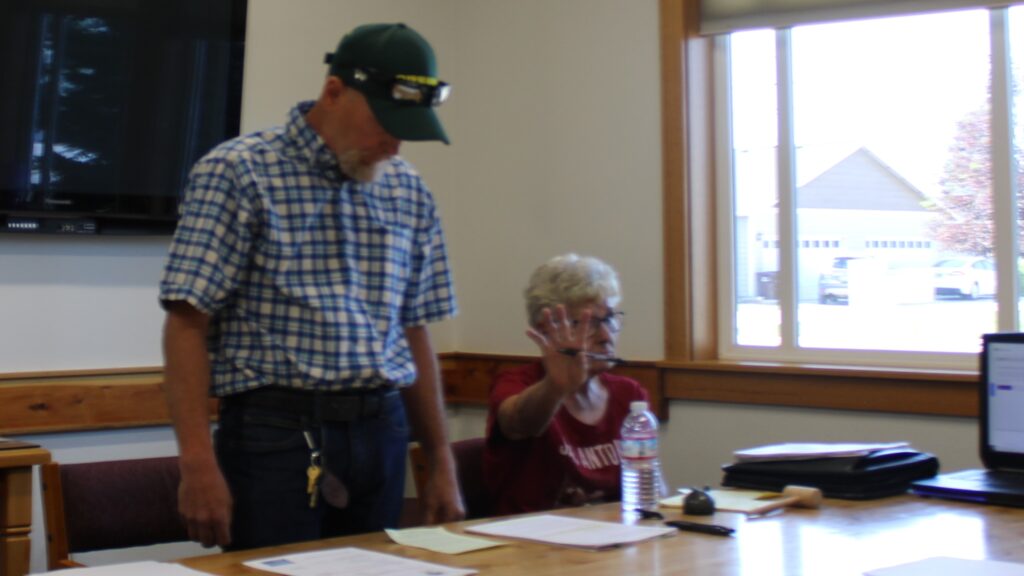
A video showing only about half of the public meeting (as it continued after an unfinished vote to adjourn) released by the district the day after on Facebook, clearly showed some of the public members in attendance on film while the board members themselves were generally not visible.
After the room was cleared by the public, the board members also continued to speak about district affairs despite still having a quorum of the members. Woods and Cummings-Basey further expressed their frustration after this reporter went back into the meeting room to record their conversations.
This publication also requested a copy of the agenda for the public meeting upon arrival as well. While initially saying they didn’t have copies for the public, Nelson later admitted in his first interview immediately following the meeting that there had been no formal agenda and it was not posted with the notice.
According to ORS 192.640: “The governing body of a public body shall provide for and give public notice, reasonably calculated to give actual notice to interested persons including news media which have requested notice, of the time and place for holding regular meetings. The notice shall also include a list of the principal subjects anticipated to be considered at the meeting, but this requirement shall not limit the ability of a governing body to consider additional subjects.”
Earlier this year, Oregon HB2805 went into effect which expanded oversight of Public Meetings Law by providing citizens a method to file complaints against public and elected officials of public bodies with the Oregon Government Ethics Commission (OGEC). Previously, the OGEC only handled complaints related to violations of executive session’s under the meetings law. That meant that Oregonian’s were left with only the option of filing legal action against the public body.
Formal investigations beyond a preliminary review against public officials by the OGEC are against officials in their personal capacity, meaning public body money and resources can generally not be used to retain legal counsel if the official desires to be represented by an attorney in the proceedings.
Jones and Wood did not respond to multiple attempts seeking comment on the allegations regarding management of the cemeteries as well as issues related to the boards compliance with the public meetings law. According to Nelson, the next board meeting is set for August 8th at 4pm, but not official notice or agenda has yet been posted.
This is a developing story that you can count on us to keep you updated on. All of our articles are free to access and do not require any subscription. Join the discussion on Facebook or X (formally Twitter).
Mr. Alderman is an investigative journalist specializing in government transparency, non-profit accountability, consumer protection, and is a subject matter expert on Oregon’s public records and meetings laws. As a former U.S. Army Military Police Officer, he brings a disciplined investigative approach to his reporting that has frequently exposed ethics violations, financial mismanagement, and transparency failures by public officials and agencies.


